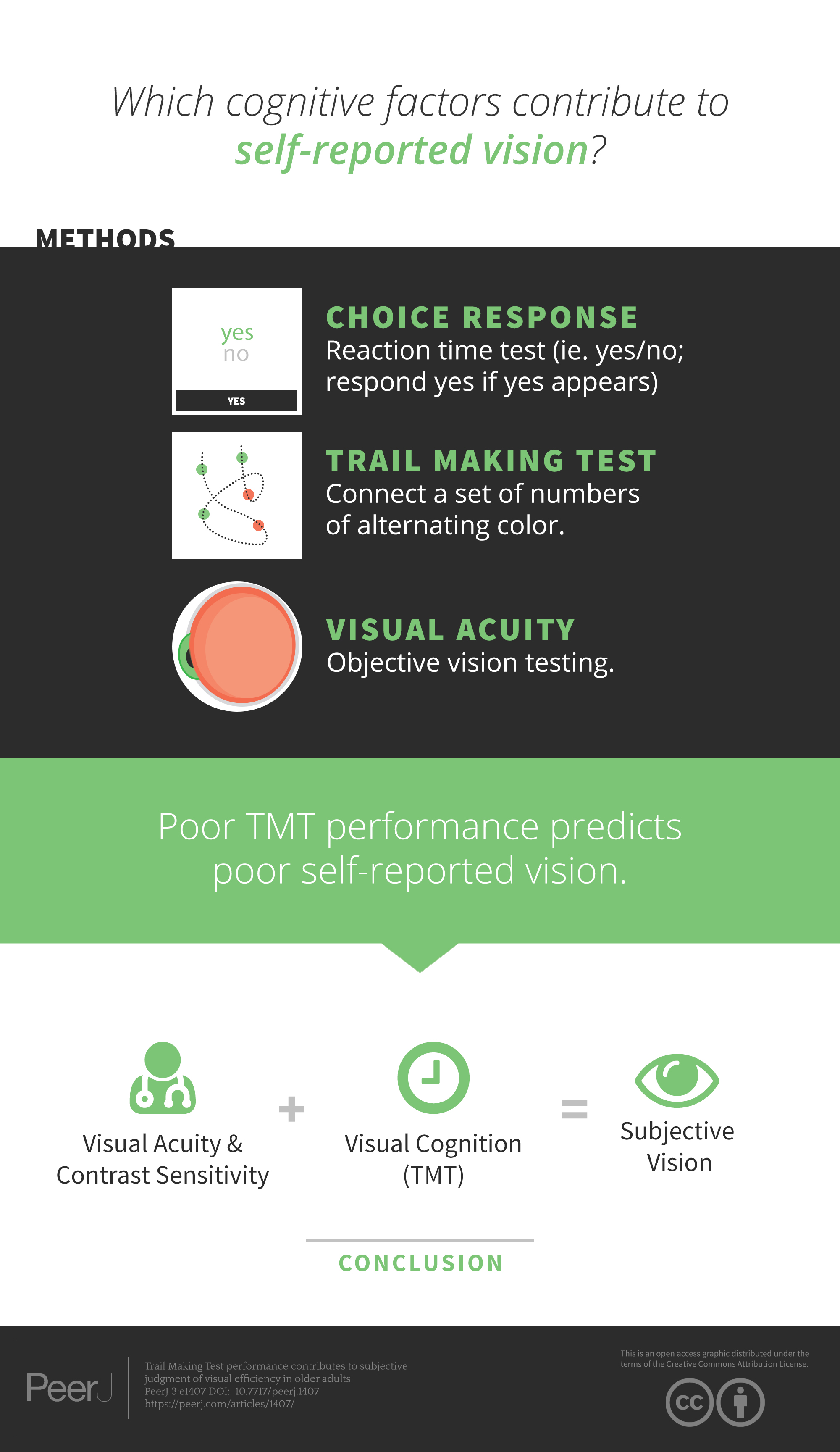LAY SUMMARY
When we provide a subjective judgment on our own vision (‘How would you rate your vision?’) this judgement is determined by several factors, one very important is of course your visual acuity (ie. what you get at the ophthalmologist) but there are higher level factors that play a part. These higher level factors are for example how able you are to use the good or poor vision that you have in tasks with different demands. What we tried to do is use a quite basic visual task requiring cognitive input (Trail Making Test) and show that performance on this test predicts (to some extent) the answer to the How would you rate your vision question. We argue that this indicates that people are (somehow) considering this ‘higher level’ when judging their own vision.
ABSTRACT
Introduction. The determinant factors that influence self-reported quality of vision have yet to be fully elucidated. This study evaluated a range of contextual information, established psychophysical tests, and in particular, a series of cognitive tests as potentially novel determinant factors.
Materials & Methods. Community dwelling adults (aged 50+) recruited to Wave 1 of The Irish Longitudinal Study on Ageing, excluding those registered blind, participated in this study (N = 5,021). Self-reports of vision were analysed in relation to visual acuity and contrast sensitivity, ocular pathology, visual (Choice Response Time task; Trail Making Test) and global cognition. Contextual factors such as having visited an optometrist and wearing glasses were also considered. Ordinal logistic regression was used to determine univariate and multivariate associations.
Results and Discussion. Poor Trail Making Test performance (Odds ratio, OR = 1.36), visual acuity (OR = 1.72) and ocular pathology (OR = 2.25) were determinant factors for poor versus excellent vision in self-reports. Education, wealth, age, depressive symptoms and general cognitive fitness also contributed to determining self-reported vision.
Conclusions. Trail Making Test contribution to self-reports may capture higher level visual processing and should be considered when using self-reports to assess vision and its role in cognitive and functional health.
CITATION
(2015) Trail Making Test performance contributes to subjective judgment of visual efficiency in older adults. PeerJ3:e1407 https://doi.org/10.7717/peerj.1407
